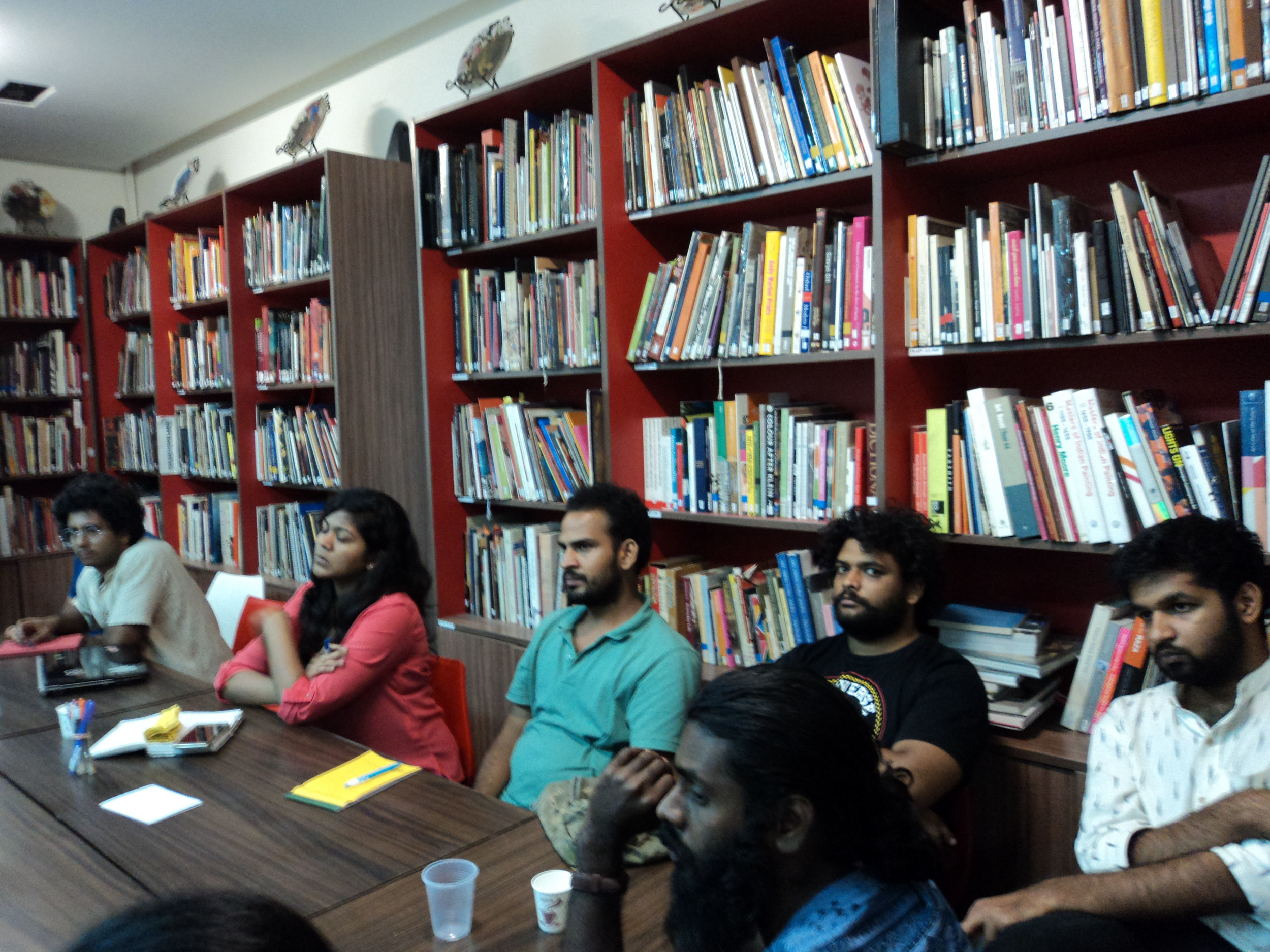Reading Images: Interpretations/Over-Interpretations
FICA Master Class with Rakhi Peswani
4th September 2015 | 10:30 am - 6 pm
FICA Reading Room | D 42, Defence Colony, New Delhi
Registration limited to 15 participants. Please see below for more details on how to apply.
FICA invites you to register for a day-long workshop "Reading Images: Interpretations/Over-Interpretations", to be conducted by artist Rakhi Peswani.
This workshop, as the title suggests, is about reading and interpreting images. A series of carefully selected images, from varied visual languages will be seen, dissected, elaborated and discussed; personal interpretations, will be compared and combined with structured information; subjectivity with objective analysis.
Images produce multiplicities, of interpretations, memes, or miscommunications. Much like Aladdin’s magic lamp, the peculiar silence that images hold, is charged with infinite possibilities. But most often, in our times, the silence of images evokes inattention, negligence or careless omittance. Advertising images and their antonymous journalistic reportage are almost seen synonymously, on one page, often together, creating a discord of vacuous thought/feeling. Our eyes, that important organ that evokes and generates response sensations, develop wakeful blindness on the face of our visual world.
The workshop will open up possibilities to re-view our reactions and catalyze our fragile sensations towards our visual world.
About the facilitator:
Rakhi Peswani (b. 1977) did her BFA in Painting and MFA in Ceramic Sculpture from M.S. University Baroda. In 2007, she won the Foundation for Indian Contemporary Art (FICA) Emerging Artist Award and in 2006 she received the Inlaks Scholarship for the UNIDEE in residence at Cittadellarte, Fondazione, Pistoletto, Biella, Italy
Peswani’s solo exhibition In Continuumwill be on view at the VadehraArt Gallery (September 3 – October 5, 2015). She held her last solo show, Anatomy of Silence, at The Guild Art Gallery, Mumbai in 2013. In 2011, she had a solo exhibition Matters under the Skin as part of Asia One at the Hong Kong International Art Fair. In 2009, her show Intertwinings was held at Vadehra Art Gallery, and in 2007, Sonnet for Silent Machines was organized by The Guild Art Gallery, Mumbai. She was also part of the group show Generation in Transition: New Art from India at the Zachęta National Gallery of Art, Warsaw (2011-2012). She has been an artist-in-residence in 2011 at Kosmopolis, Den Haag, The Hague, and at Sanskriti Kendra, New Delhi, in 2007. Peswani has also made installations, set designs and costumes for two operas Orfeo in India and Bodies/Subterrain (Eurydice and Sita) in 2010 and 2011 respectively.
She has previously taught as full time faculty at Srishti School of Art and Design (2012-14), Bangalore; as guest faculty at Hyderabad Central University (2004-2012), Hyderabad. She is currently a visiting faculty at the newly established Art and Design department at Acharya Institute, Bangalore. She lives and works from Bangalore.
The FICA Master Class is a series designed for young artists who are looking to closely engage with an experienced practitioner through a set of workshops that explores his/her practice. These intensive learning modules focus on innovative approaches to diverse mediums and materials. They open up possibilities of conceptualizing and making through the process of research, reading, exploring material/mediums, collaboration and exchange. Each class has been designed around the practice of the artist who conducts the session and provides triggers to young practitioners to experiment and explore. The Master Class series will be held on a monthly basis between May and August 2015.
The workshops will generally be week-long sessions, with 3-4 hours classes. Classes include both practice and theory. Basic materials for the classes will be provided. Participants will need to bring their own laptops/cameras as required.
The Master Class is part of FICA's larger educational programming. FICA’s educational outreach focuses primarily on two questions – how do we use the art resources that are available in a gallery/museum/library to engage better with the audience; and how can we use art education as an important cultural tool that can extend itself to everyday life? Each programme is thus tailored for a particular audience, developed in collaboration with practicing professionals, and creates a space for exchange and deeper engagement with the subject in hand. Participants are invited to share their work and open themselves to constructive feedback from their peer group. For any queries write to us at info@ficart.org




